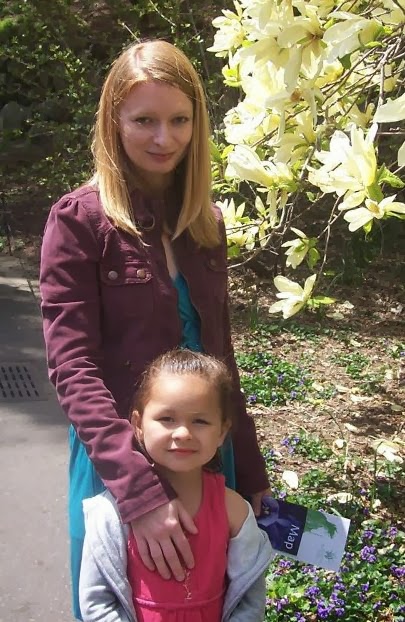My father and I share afflictions– quick tempers, stubbornness, and the weight of our own standards for ourselves. When I think of what’s been passed down through generations of my family, I think of his family– their traits, their values. There’s very little of material worth that’s been passed down through the Edwards family, but none of us complain much about that. The Edwards stubbornness is legendary– my great-great grandfather died refusing to go to the hospital for an intestinal blockage. Incidentally, his wife was killed in a hunting accident– her gun went off while she was hopping a fence.
My father hates two things above and beyond anything else in the world: waste, and laziness. His abhorrence of waste came through necessity– as of yet, no Edwards has been able to afford the luxury of waste. My dad’s a notorious packrat. His greatest fear is throwing something away and later finding out that he could’ve used it for something. When my great grandfather died, my dad cleaned out his garage. Dad came home with a boxful of old junk– mostly stuff my great grandfather had hoarded for countless decades. Grampa was a packrat, too.
My dad’s loathing of laziness is a trait all his own. He works hard, and expects others to do the same. He can, however, allow for failure in others, as long as their intentions were good. He can’t accept failure in himself.
Six years ago, my father didn’t come home from work. He owned his own business then, a small shoe repair shop that never seemed to turn a profit. On the door of his shop that day, we found a note: “Gone home for the day. Sick.” My father’s car was gone, along with a bunch of his belongings. On the counter in his shop, we found piles of unpaid bills and various financial forms. I was sick with guilt when I discovered that the forms that drove him over the edge were my financial aid forms. His business was deep in the red, and had been for years, and he hadn't paid taxes in a dog's age. Like a good Edwards, he hadn’t said a word about it to anyone.
Two days later, my father called from West Virginia. He’d felt compelled to drive south, to escape the bills, the stress, the pressure. He had contemplated life and death, gained some perspective, and decided to return. Another two days and he was back, and my parents began picking up the financial pieces. Beyond what pertained to practical matters, such as selling his business and getting the taxes in order, we never spoke of it. The ordeal fell out of conscious memory altogether, only to resurface at random. It takes me by surprise that I have managed to forget this incident, to genuinely bury it.
At the time, I could not figure out how my father could have done such an irrational thing– taking off without a word to his family, leaving us in suspense for two days before he called, not knowing whether he was alive or dead. Now that I, too, have gained some perspective, what he did seems to fit. The same Edwards that can’t admit he’s sick enough to see a doctor, also can’t admit that he’s wasted 20 years on a business that will always devour more money than it delivers. It’s a failure that reeks of laziness, of not trying hard enough. This self-destructive mindset is my affliction as well.
I had a hard time in high school, like a lot of kids do. Periodically I found myself stuck in an existential fog, unable to justify my life, to attribute any meaning or reason to it. It was during one of these times that I found a little note from my dad, scrawled in his almost illegible handwriting– Always remember, no matter how dark a day may seem, there’s someone who loves you – me. –Dad. He knew what I was going through and understood exactly what I needed, because the life or death question runs in his family too– Am I, myself, a waste?
Since leaving home for school, I’ve felt a rift between myself and my family. I’m the first Edwards to go to college, the first to move to a city far away, and the family picks on me about it. Their teasing is good natured, but there’s a palpable distance separating us now. I feel like I’ve jumped ship. Straddling the two worlds in my life, I feel like my great-great grandmother hopping over that fence. Like her shotgun that delivered the fatal blast, what stays with me is the question, the affliction. Like a good Edwards, I keep it to myself.
Miranda,
I just finished reading your piece, it evoked a storm of emotion in me, I am
first very proud of you and your insight. Not everyone can or will examine
themselves with such accuity. I look back to the time I left, overwhelmed by
stress, guilt and uncertainty. I know without a doubt, had I not gone, I
would not be here today. I hope I have not scarred those I love too deeply.
I also hope the lessons to be learned will not be overlooked. This
"affliction" can be a terrible thing but there is value in knowing yourself
and your motivations, I am learning.
I know and feel the separation you wrote about, I really think it has more
to do with your growing up than your going off to college. For my part, I
feel I have to learn who you are all over again and I want to give you the
space to become that person without inflicting the limitations of my small
world upon what can be your great big world. I think that you are headed for
a great life that you are only beginning to imagine. I love you and am very
proud to have you for a daughter.
Dad
